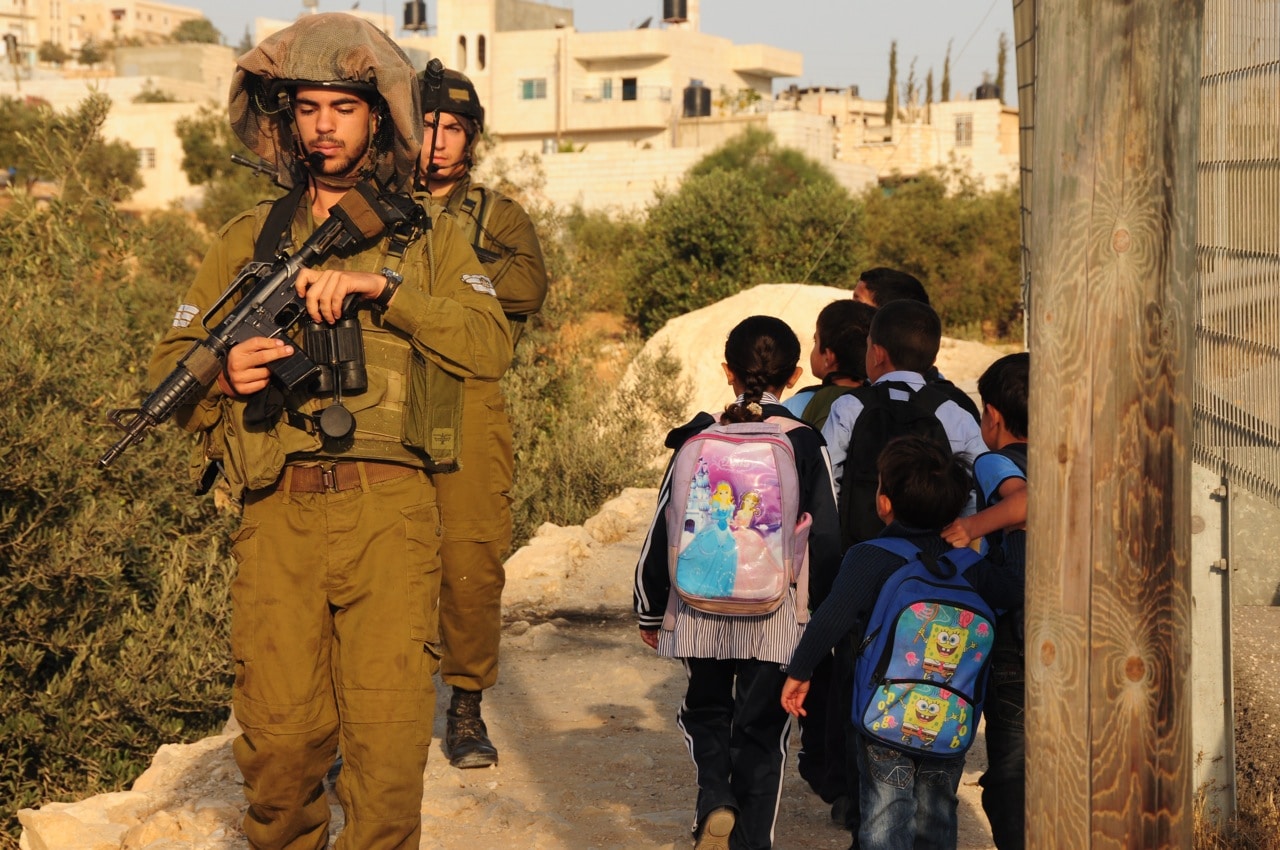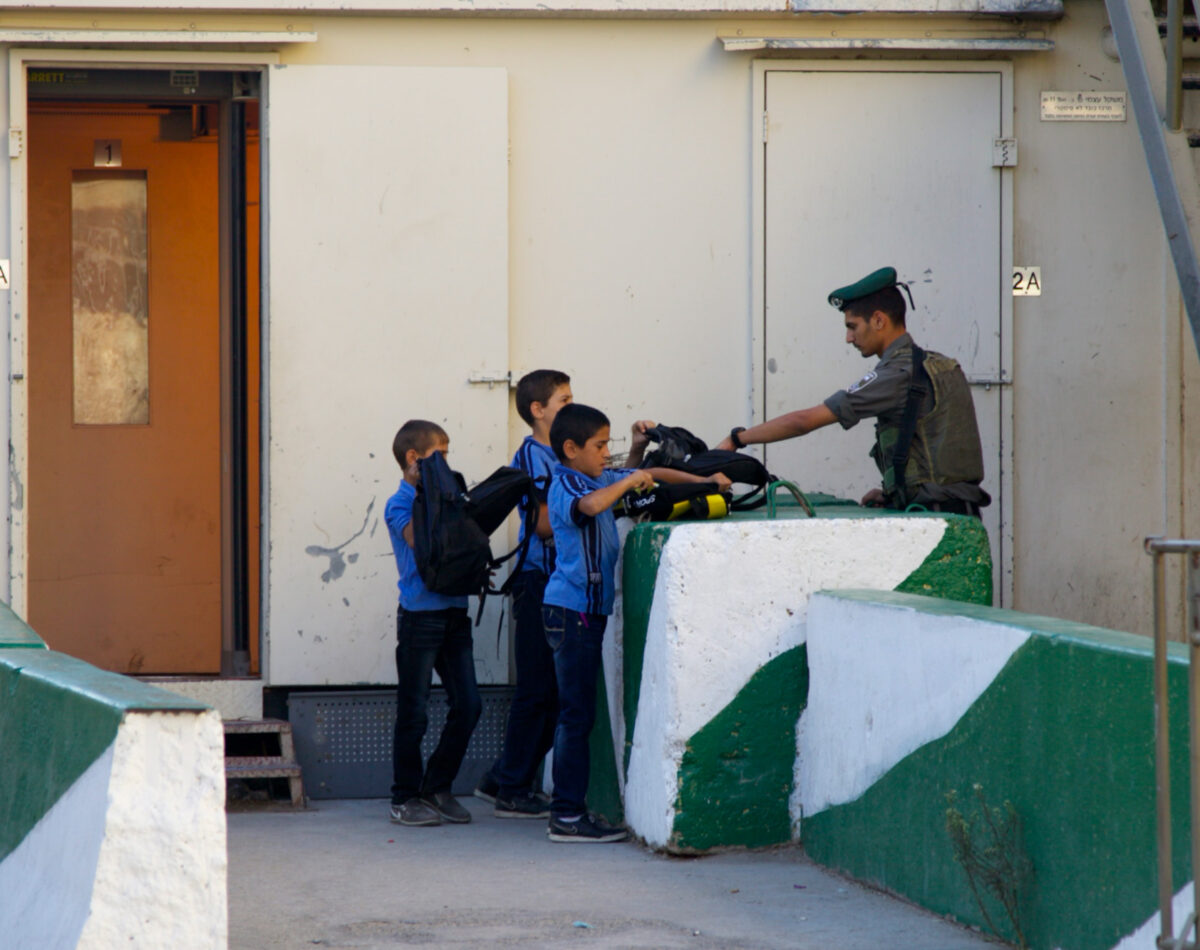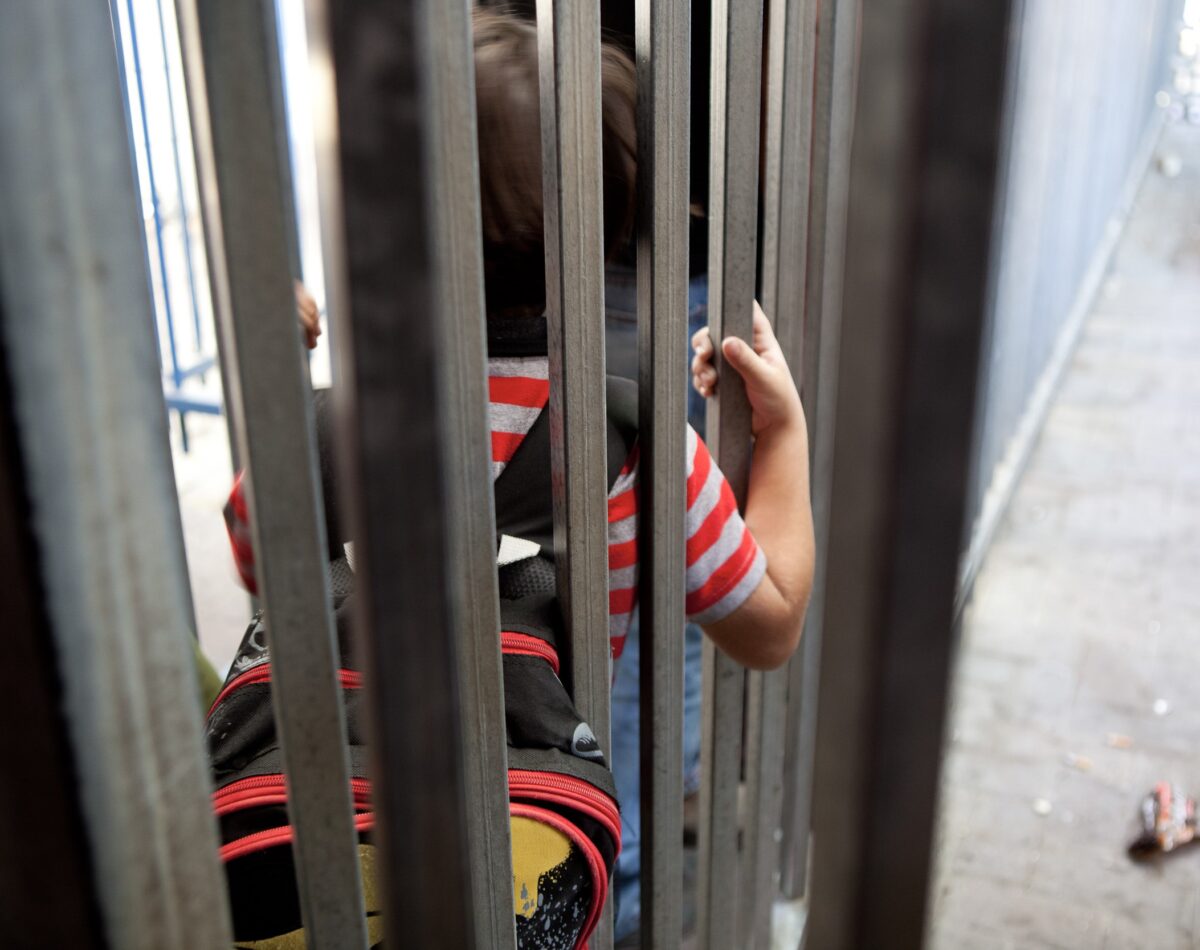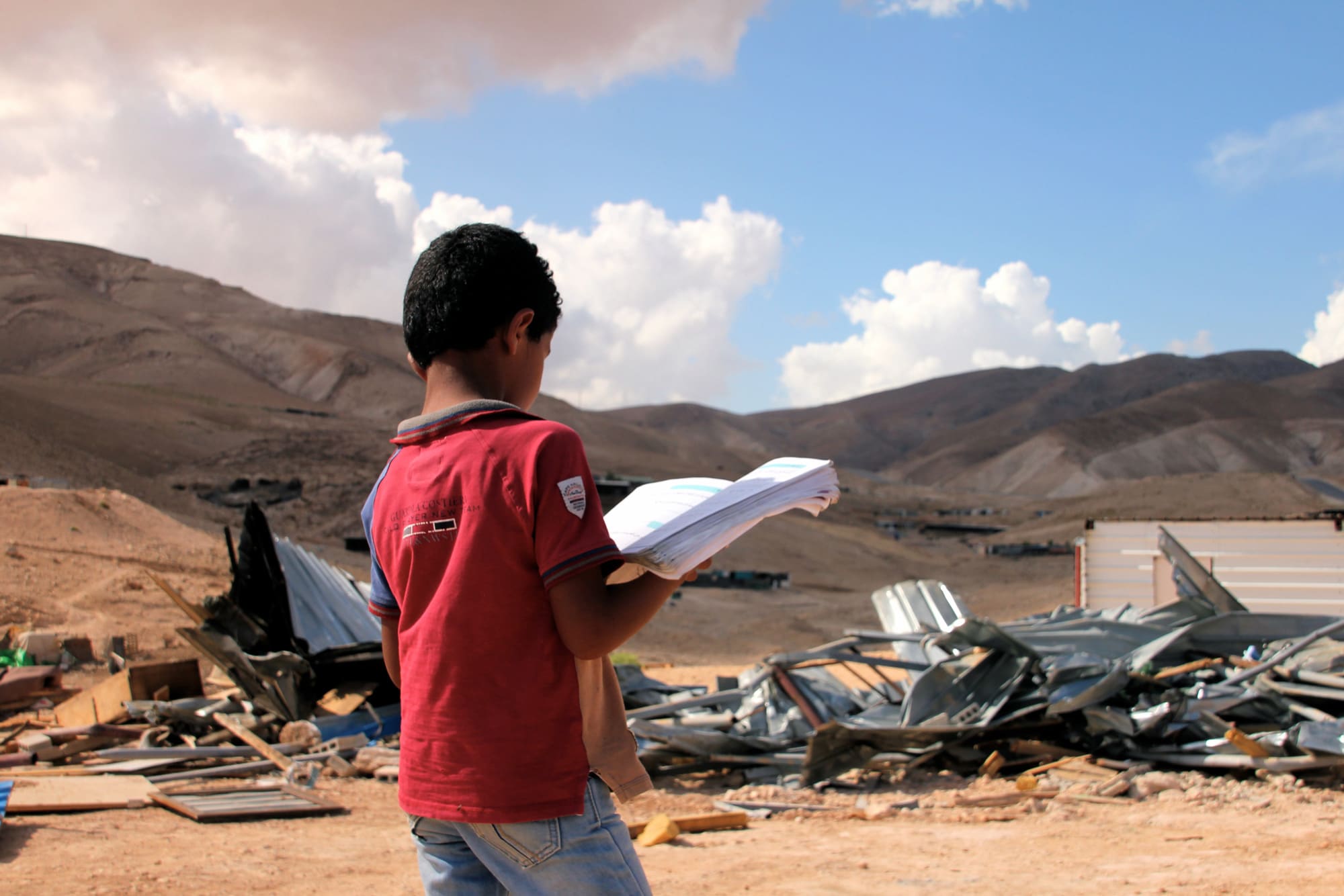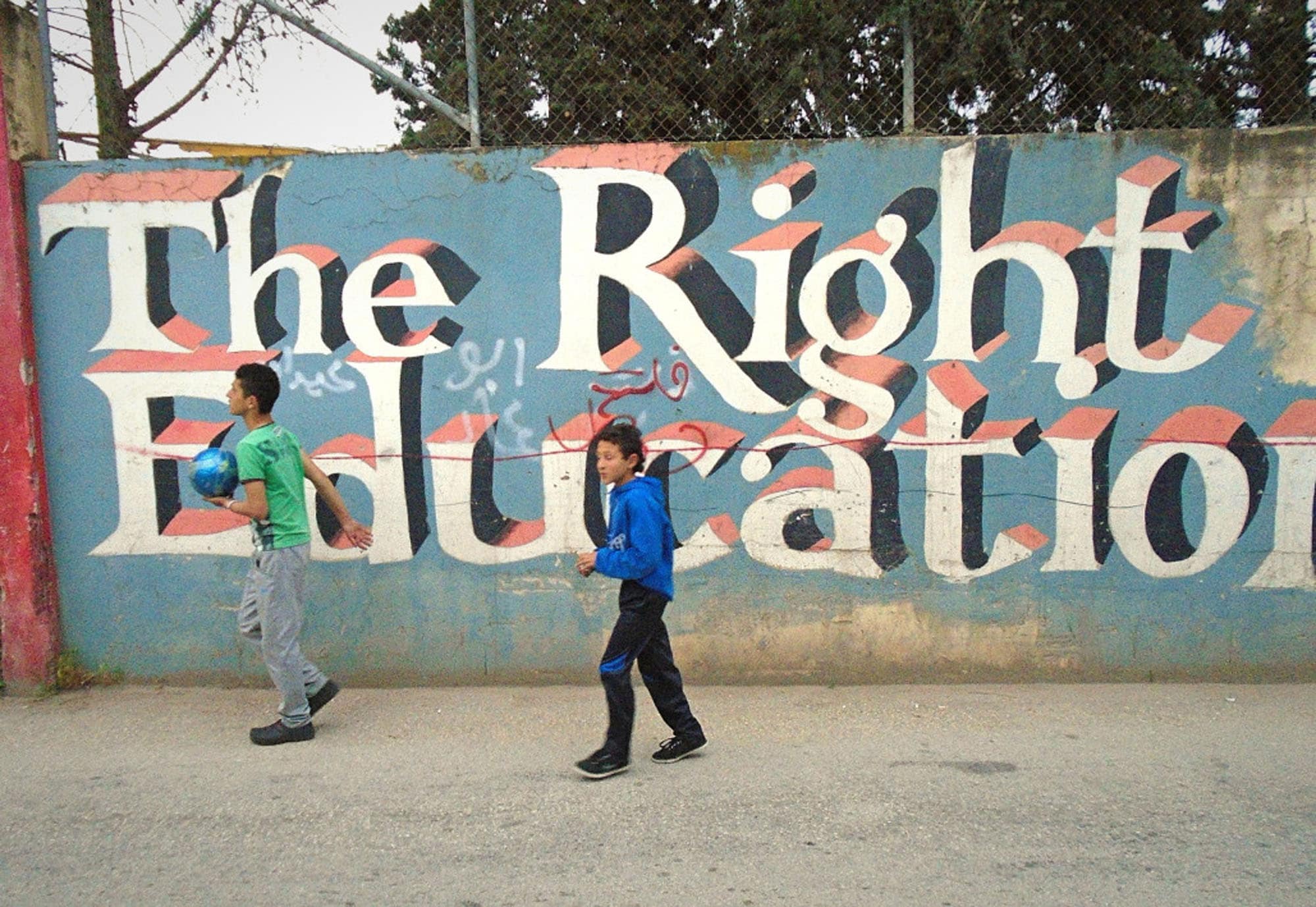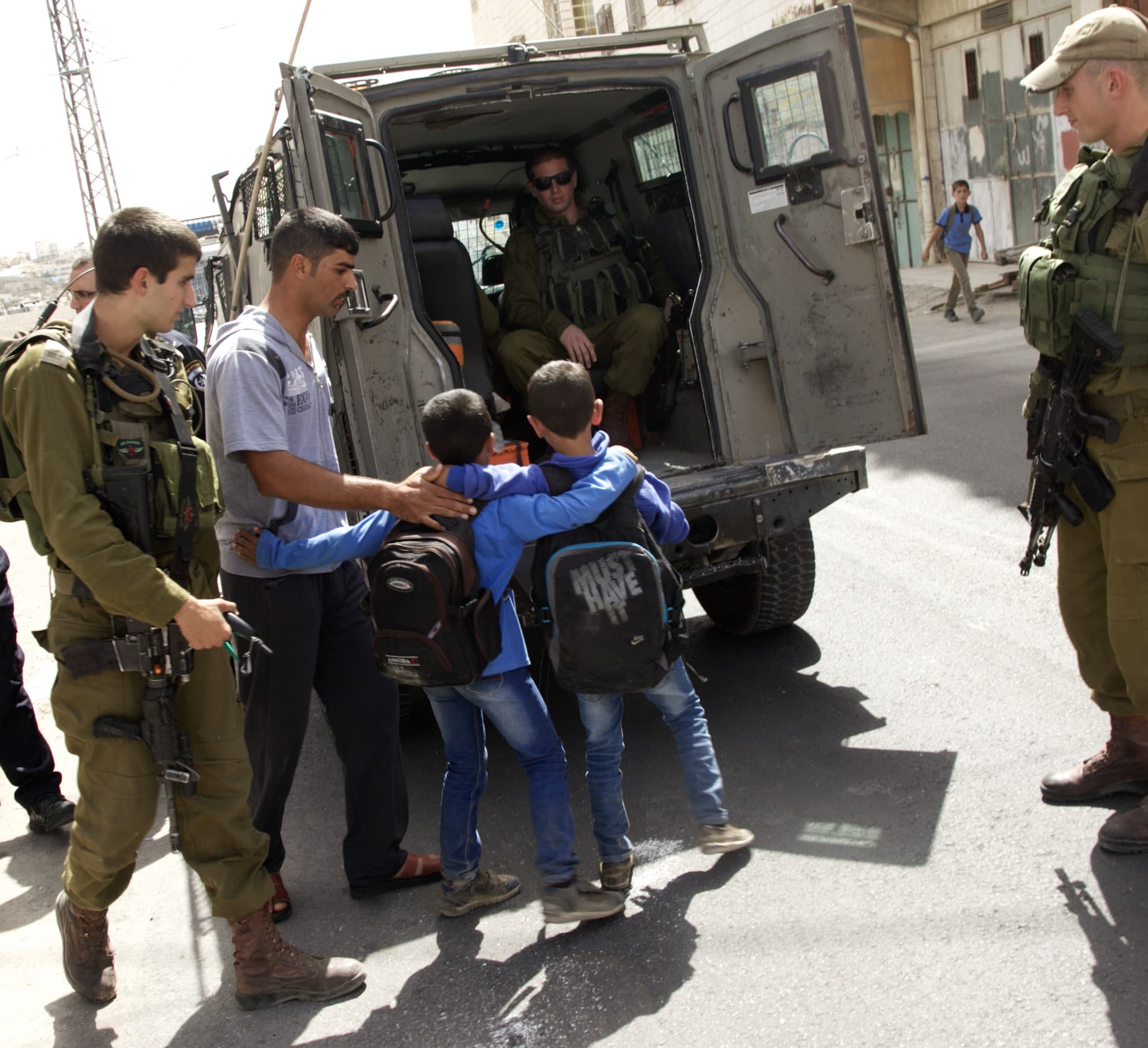Children
by EA Sophie – 5 min read
What is it like to be a child living in Palestine? From barriers to education to child detention, Palestinian children living under occupation face serious violations of their rights.
Education
Education is highly valued in Palestinian culture, yet getting to school every day can be a challenging and scary experience for many Palestinian children. Many experience harassment on their way to school from the Israeli military, which can range from delaying students or searching their bags to physical harassment by soldiers (UNICEF). Those who have to pass Israeli settlements also face intimidation and physical violence from settlers, either children or adults.
According to UNOCHA, there are over 700 permanent obstacles across the West Bank restricting or controlling Palestinian movement. Many children have to pass through military checkpoints on the way to school.
Although schools should be places where every child feels safe, attacks on schools in the occupied West Bank by the Israeli military are common. In 2018 alone, the UN recorded 111 incidents where the Israeli military launched attacks schools, affecting over 19,000 children. More than half of the incidents ‘involved live ammunition, tear gas, and stun grenades fired into or near schools by Israeli forces’.
Attacks on schools are identified by the UN as a grave violation of children’s rights. They place children in immediate danger of being hit by rubber bullets or live fire, or breathing difficulties resulting from tear gas exposure, as well as having an enduring impact on children’s mental health.
One of the most basic and critical elements of having an education is having a school to go to. But for many children in occupied Palestine this is not a certainty. Although the Israeli authorities control planning and building in most of the West Bank, they rarely issue permits for Palestinian buildings, despite natural growth in the population. Because of this, many buildings in the West Bank (including schools) are built without permits and are at threat of demolition. These demolitions stop children from accessing their education, or lead to children needing to navigate long journeys alone to get to school.
Child Detention
According to the UN Convention of the Rights of the Child, children should only ever be arrested or detained as a last resort. Yet since 2000, an estimated 10,000 Palestinian children have been detained by Israeli authorities from the occupied West Bank and held in the Israeli military detention system. As of September 2024, more than 200 children were being detained in Israeli military jails, some as young as 12-years-old. In more than eighty percent of cases the charge is ‘stone throwing’ or ‘suspected stone throwing’.
All charges filed by Israel against Palestinians in the West Bank take place in a military court – including against children. Under international law, Israel is entitled to set up military courts in temporarily occupied territory, but it is the only country in the world that systematically sends children to them. Furthermore, there are multiple human rights abuses reported under this system, without any recourse for justice.
Defence for Children International Palestine (DCIP) collected 739 testimonies from Palestinian children who were detained by the Israeli authorities from the occupied West Bank, and prosecuted in Israeli military courts between 2013 and 2018. In the vast majority of cases, children experienced violence and were not fully informed of their rights.
(Source: DCIP)


